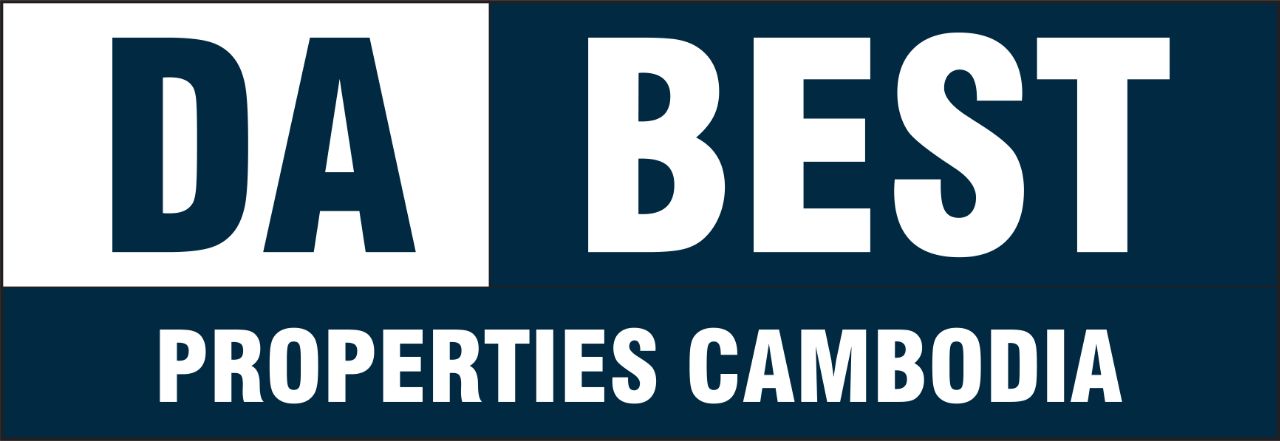Legal Path to Property Ownership in Cambodia: A Buyer’s Guide
Unraveling the Legal Labyrinth: Your Guide to Owning Property in Cambodia
Are you thinking about owning property in Cambodia, but unsure of the legalities involved? The process can be intricate, especially considering that private land ownership was non-existent there from 1975 to 1979.
This blog post will navigate you through the Cambodian real estate laws and provide a practical guide for purchasing property as a foreigner. Let’s jump right in and unravel the intricacies of Cambodian property market together!
Key Takeaways
- Foreigners can legally own certain types of properties in Cambodia, such as buildings and apartments from the first floor upwards.
- Options for foreign land ownership include long-term leases, investing through concessions, forming a landholding company, using a Cambodian nominee, marrying a Cambodian citizen, or acquiring Cambodian citizenship.
- Understanding the legal framework and restrictions on foreign ownership is crucial before investing in property in Cambodia.
Navigating Cambodia’s complex property ownership laws as a foreigner? This comprehensive guide demystifies the process so you can invest confidently.
Can Foreigners Own Property in Cambodia?
Foreigners are allowed to own certain types of properties in Cambodia, but there are limitations and restrictions placed on foreign ownership.
Types of properties allowed for foreign ownership
Foreign nationals can legally own certain properties in Cambodia, adding to the country’s investment appeal. This ownership extends principally to buildings and apartments from the first floor upwards excluding the ground floor, thanks to a law passed in 2010 that introduced strata titles.
Strata title is a form of ownership devised for multi-level apartment blocks and horizontal subdivisions with shared areas. Additionally, foreigners have rights to long-term leases on land and buildings that run up to 50 years.
These are renewable and can be transferred or sold, giving foreign investors substantial flexibility for their investments in Cambodian real estate market.
Limitations and restrictions on foreign ownership
Foreign ownership of land in Cambodia is restricted under Article 44 of the law. However, foreigners are still allowed to purchase other types of property in the country, such as condos and apartments.
Owning land as a foreigner can be more challenging, but there are alternative options available like long-term leases or forming a landholding company with Cambodian partners. It’s important for investors to understand these limitations and restrictions before proceeding with their property purchase in Cambodia.
Legal framework for foreign ownership
Foreign ownership of land in Cambodia is restricted according to Article 44 of the law. However, foreigners are still allowed to purchase other types of property in the country, such as condos and houses.
To own land in Cambodia, it is essential for a legal entity to have Cambodian nationality, with at least 51% of its shares owned by Cambodian individuals or entities. Understanding the legal framework and restrictions on foreign ownership is crucial before investing in property in Cambodia.
“Investing in Cambodian real estate as a foreigner requires a deep understanding of the country’s complex legal system and ownership restrictions,” says Andreas, a real estate expert of dabest-properties.com. “This guide provides a much-needed roadmap, highlighting viable options such as long-term leases, company formations, and even the often-overlooked Trust Law. By thoroughly addressing the legal nuances and due diligence processes, it empowers foreign investors to make informed decisions and mitigate potential risks, ultimately paving the way for successful property ownership in this dynamic market.”
Ways for Foreigners to Have Rights to Property in Cambodia
Foreigners can gain rights to property in Cambodia by leasing land under a long-term contract, investing in land through concessions, forming a landholding company or taking a minority stake, using a Cambodian nominee, marrying a Cambodian, or acquiring Cambodian citizenship.
Leasing land under long-term contract
Foreign investors interested in owning property in Cambodia can lease land under a long-term contract. While foreigners are restricted from buying land, they can lease it for up to 50 years, with options to renew or transfer the lease.
This allows investors to gain legal rights and control over the property without full ownership. Leasing land provides an opportunity for long-term investment and development projects in Cambodia’s growing real estate market.
However, it is important for investors to conduct thorough due diligence on the terms of the lease agreement and ensure they comply with Cambodian laws and regulations.
Investing in land through concessions
Foreign investors in Cambodia have the option to invest in land through concessions. This means that they can enter into an agreement with the government or local authorities to use and develop a specific area of land for a specified period of time.
During this concession period, investors have certain rights over the land, including the ability to build infrastructure or operate businesses. However, it’s important for investors to know that concessions do not provide ownership rights over the land.
Instead, it grants them permission to utilize and benefit from the land for commercial purposes within the agreed-upon timeframe.
Forming a landholding company or taking a minority stake
Foreign investors who want to own property in Cambodia can consider forming a landholding company or taking a minority stake. This option allows them to indirectly own the property through their ownership of shares in the company.
According to Cambodian law, at least 51% of the shares must be owned by Cambodian individuals or entities. By partnering with local investors, foreigners can navigate the restrictions on foreign ownership and gain access to desirable properties in Cambodia.
It is important for investors to seek legal advice and thoroughly understand the regulations surrounding this option before proceeding with forming a landholding company or taking a minority stake.
Using a Cambodian nominee
Foreigners interested in owning property in Cambodia can consider using a Cambodian nominee as a way to gain rights to land. In this arrangement, the foreign buyer selects a trusted Cambodian individual or entity to hold legal ownership of the property on their behalf.
While this method allows foreigners to indirectly control and profit from the property, it is crucial for buyers to thoroughly research and choose their nominee carefully, ensuring that they fully understand and comply with all relevant laws and regulations.
By working closely with their chosen nominee, investors can navigate the complexities of Cambodian real estate ownership while protecting their interests in the process.
Marrying a Cambodian
Marrying a Cambodian is another way for foreigners to gain rights to property ownership in Cambodia. By marrying a Cambodian citizen, foreigners can obtain joint ownership of property or have their spouse’s name on the title deed.
This provides them with legal protections and rights over the property. It is important to note that this option requires careful consideration and understanding of local customs and laws surrounding marriage and property ownership in Cambodia.
Acquiring Cambodian citizenship
Foreign investors interested in owning property in Cambodia can acquire Cambodian citizenship. The law stipulates that Cambodian individuals or entities must own at least 51% of the shares to own property as a legal entity.
By becoming a citizen, foreign investors can meet this requirement and gain the rights to own property in Cambodia. Acquiring Cambodian citizenship provides investors with greater flexibility and opportunities for investment in the country’s real estate market.
During the period between 1975 and 1979, private land ownership was abolished due to political unrest in Cambodia, resulting in a lack of records regarding land ownership. It is important for foreign buyers to conduct due diligence on properties they are interested in, including checking their ownership history and legal status.
Editor’s Note – Understanding the legal aspects of property ownership in Cambodia as a foreigner can be a complex process. This guide provides clarity on the available options, such as long-term leases and company formations, while also exploring the Trust Law. By examining the legal framework, restrictions, and due diligence requirements, this article serves as a valuable resource for foreign investors aiming to navigate the Cambodian real estate market while protecting their interests.
Condos for sale in Phnom Penh [Find Your Dream Condo in Phnom Penh with DaBest Properties Cambodia]
Ways for Foreigners to Own Property in Cambodia
Investing in land through a long-term lease, owning a strata title in a co-owned building, setting up a company structure – these are just some ways for foreigners to own property in Cambodia.
Discover the legal paths to property ownership in Cambodia and start investing today!
Investing in land through a long-term lease
Foreign investors interested in owning land in Cambodia can consider investing through a long-term lease. Although foreigners are generally restricted from buying land directly, they can enter into long-term lease agreements with Cambodian individuals or entities who own the land.
These leases typically last for 50 years and can be renewed for an additional term of up to 50 years. This option allows investors to have secure rights to use and develop the land without full ownership, providing an opportunity to participate in Cambodia’s growing real estate market.
Owning a strata title in a co-owned building
Foreigners interested in property ownership in Cambodia have the option of owning a strata title in a co-owned building. This allows them to own and have full control over an individual unit within a larger building, such as an apartment or office space.
As part owners of the overall building, they also enjoy shared ownership and access to common areas and facilities. It’s important for potential buyers to understand the legal requirements and restrictions associated with this type of ownership, as well as conduct thorough due diligence on the property before making any purchase decisions.
Setting up a company structure
Foreigners interested in owning property in Cambodia can consider setting up a company structure as a viable option. This allows them to have ownership rights and control over the property, while complying with Cambodian real estate laws.
To do this, foreigners must form a legal entity, such as a limited liability company (LLC), with at least 51% of its shares being owned by Cambodian individuals or entities. By establishing a company structure, investors can navigate the restrictions on land ownership for foreigners and confidently invest in the Cambodian real estate market.
It is important to note that setting up a company structure requires careful consideration and due diligence. Investors should consult with legal professionals experienced in Cambodian real estate laws to ensure compliance and protect their interests.
Conclusion
In conclusion, this buyer’s guide provides a comprehensive overview of the legal path to property ownership in Cambodia. From leasing land under long-term contracts to forming a landholding company, there are various ways for foreigners to have rights and own property in Cambodia.
By understanding the legal framework and conducting thorough due diligence, investors can navigate the Cambodian real estate market with confidence.
FAQs
What is the legal path to property ownership in Cambodia?
The legal path to property ownership in Cambodia involves:
- Understanding real estate laws.
- Meeting legal requirements for buying real estate.
- Following steps according to a buyer’s guide.
Can foreigners own land or houses in Cambodia?
While there are regulations around foreign ownership of land in Cambodia, under the Trust Law foreigners can invest in Cambodian real estate market and have ownership rights with certain conditions.
What factors should you consider when purchasing property in Cambodia?
When buying a house as a foreigner or for investing purposes in Cambodian real estate market, consider factors such as cost of housing, location, property rights and potential return on investment.
How much does it cost to buy or build a house in Cambodia?
Costs vary widely for buying properties or building houses based on their size and location but you can find cheap houses too if you research well about the housing process and costs involved.
Are there any special requirements regarding citizenship and land ownership?
Yes! To understand your rights related to citizenship and land ownership in Cambodia, refer to guides available about understanding these specific aspects of law while proceeding with acquiring properties.
Is it important to understand trust law before purchasing property as a foreigner
Absolutely! It’s key that potential buyers understand both the benefits and limitations of trust law before making any substantial financial commitments towards owning property.




